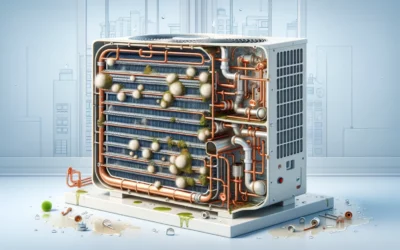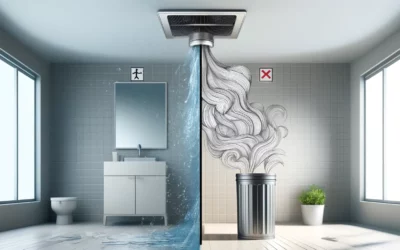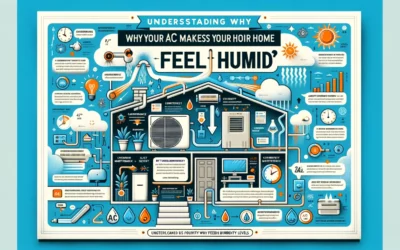Welcome to our latest post – “Demystifying Lifespan: How Long Home Air Filters Truly Last”. We understand that determining when to change your home air filters can be mystifying. With so much conflicting information out there, it’s tough to know who to trust. That’s why we’ve crafted this comprehensive guide to unravel the mystery once and for all. We’ll share insider knowledge, backed up by solid facts, to enable you to understand the average lifespan of home air filters, the factors that may affect their longevity, and the implications for your wellbeing and for your heating, ventilation, and air conditioning (HVAC) systems. This post aims to assist you in making informed decisions when it comes to maintaining good air quality in your home, all while potentially saving you time, effort, and money in the long run. Let’s dive right in and start demystifying!
Understanding Lifespan: The Reality of Home Air Filters
Many homeowners wonder about the lifespan of their air filters, often harboring misconceptions. In reality, the lifespan of an air filter can depend on a range of factors, such as air quality, usage and filter type. On average, the most used filter type - the disposable pleated air filter – has a lifespan of about 90 days. However, factors like pets, home cleanliness, and airborne allergies may significantly reduce this lifespan. Therefore, it’s important to comprehend these dynamically influencing factors to evaluate better when a replacement is required.
The more pets you have in the house, the higher the dander levels and the shorter the lifespan of your air filter. Similarly, if your house tends to accumulate dust quickly, you’ll probably need to change your filters more frequently. Homes with allergy sufferers also require more frequent air filter changes to minimize allergens. Below is a simplified table overview of the typical lifespan of some common types of home air filters.
| Type of Air Filter | Typical Lifespan |
|---|---|
| Disposable Pleated Air Filter | 1-3 months |
| Fiberglass Air Filter | 1 month |
| Permanent Electrostatic Air Filter | 6-8 years, with monthly cleaning |
It’s worth noting that the lifespan of your air filter might vary due to factors like indoor pollution levels, air filter quality, and how often you use your HVAC system. Hence, it’s always a good rule of thumb to check your air filter once a month and replace as necessary.
Determining Factors: What Influences The Longevity of Air Filters
The life expectancy of home air filters can be influenced by a spectrum of factors. Understanding these determinants could help you learn when to change your air filters in order to enjoy fresher, cleaner air within your living spaces.
To begin with, the type of air filter used has a major bearing on how long it is effective. The most common types of home air filters are fiberglass, polyester, and high efficiency particulate air (HEPA) filters. While fiberglass filters may only last around 30 days, polyester and HEPA filters are usually more robust, lasting between 60 and 90 days, and up to a year if kept clean, respectively.
Air quality is another crucial factor. In highly polluted areas or areas with poor outdoor air quality, filters may need to be replaced more often. Similarly, if the indoor environment is dustier, for instance, as a result of having pets, construction activities or heavy traffic, the filters may get clogged up faster, thereby reducing their longevity.
Further, the frequency of use of the air filter system also affects its lifespan. For example, if your system runs continuously, the filters may wear out faster and need replacement sooner than they would if the system is used less.
| Type of Air Filter | Average Lifespan |
|---|---|
| Fiberglass | 30 days |
| Polyester & Pleated | 60-90 days |
| HEPA | Up to 1 year |
Lastly, it is also important to consider factors like the size of the home, the number of occupants, and their health conditions. Bigger homes or homes with more occupants can potentially generate more pollutants, hence requiring more frequent change of filters. If someone in your home suffers from allergies or respiratory conditions, it is recommended to replace the filters even more frequently to maintain optimal air quality.

Signs of Replacement: When Should You Really Change Your Air Filter
Air filters play a crucial role in maintaining our home’s clean environment, but it’s equally important to understand when they might need replacement. Unusual noises from your HVAC system, increased energy bills, and repeated respiratory or allergy issues amongst family members often suggest a call for change. Dust accumulation around vents and a noticeable foul odour can also act as red flags about the diminishing efficiency of the filter. In some cases, you may even observe that your heating and cooling system is laboring more than usual or the cooling/heating times are extended, hinting at an overworked air filter. Prompt attention to these signs can significantly improve air quality.
Let’s consider filter lifespans. The typical time span varies based on the type of filter. Here’s a general guide:
| Type of Filter | Expected Lifespan |
|---|---|
| Fiberglass Filters | 1 month |
| Pleated Filters | 3-6 months |
| Electronic Air Cleaners Filters | 6-12 months |
| HEPA Filters | 1-3 years |
Though these timelines can provide a rough estimate, it’s vital to remember that the environmental conditions and usage location directly affect the actual lifespan of an air filter. For example, families with pets or smokers might need to replace filters more frequently than the norm. It’s advised to check your air filters about once a month to ensure optimal air quality.

Expert Advice: Recommendations on Choosing Long-Lasting Air Filters
The sheer multitude of air filters available on the market can be momentarily mind-boggling, making the task of selecting a durable option daunting. As a rule of thumb, the high-quality pleated filters are generally known for their pros, including exceptional durability, high efficiency,and improved air flow. Initially, these might seem a bit pricey compared to the standard fiberglass filters, but they prove cost-effective in the long run as they need to be replaced less often, usually every six to twelve months, depending upon the usage and air quality.
However, understanding the MERV (Minimum Efficiency Reporting Value) rating can provide a wealth of information about the longevity and performance of air filters. A higher MERV rating indicates a more effective filter.
| Filter Type | Average Lifespan |
|---|---|
| Fiberglass Panel Filters | 1 Month |
| Pleated Air Filters | 3-6 Months |
| Electrostatic Filters | 6-12 Months |
| HEPA Filters | 12-18 Months |
As an end note, frequent air filter checks are advisable. If you observe a build-up of dust, dirt, or any visible impairment, replace the filter irrespective of the specified lifespan. In essence, durability and longevity greatly depend on the usage & maintenance rather than just a pre-set lifespan mentioned by the manufacturer. Investing in a higher quality filter and maintaining it appropriately will invariably reward you with cleaner, healthier air for a longer period.

Busting Myths: The Clever Marketing Tactics of Air Filter Manufacturers
Let’s get right to the essence – the often-touted “three-month lifespan” claimed by many air filter manufacturers. Is it the accurate duration for which a home air filter can function optimally? Spoiler alert: Not necessarily. The lifespan of your home air filter depends on multiple factors such as the type of filter you are using, the overall air quality in your home, and the number of pets and people occupying the space among others. However, to provide you with an over-simplified idea of the lifespan of different types of filters, we have created a simple table. Please consider these figures as broad estimates and not the exact lifespan. Your filters’ lifespan might be more or less depending on your living conditions.
| Type of Filter | Estimated Lifespan |
|---|---|
| Fiberglass Air Filters | 30 Days |
| Pleated Air Filters | 90 Days |
| HEPA Filters | 1 Year |
Fiberglass Air Filters are generally the most affordable option but have the shortest lifespan. They tend to need replacement every month. Pleated Air Filters, on the other hand, offer better quality filtration and can last around three months. The highest-quality HEPA Filters can last up to a year if your living conditions aren’t too demanding. In conclusion, the “three-month” claim is a general marketing tactic popular among air filter manufacturers. It’s crucial to monitor your air filter’s condition regularly and change it as needed, rather than blindly sticking to a pre-decided schedule. Your air filter’s lifespan is genuinely a case of ‘it depends’.
Your Step Toward Purer Air: Implementing Best Practices for Air Filter Maintenance
One of the most vital steps towards maintaining pure air quality within your home is ensuring that your air filters are properly maintained. However, many homeowners are left wondering, “Just how long does a home air filter actually last?” Generally, the answer depends on a variety of factors, such as the type of air filter you’re using, their build quality, air quality in and around your home, and the number of occupants. However, a typical rule of thumb suggests replacing your home air filters every 60 to 90 days.
Let’s break this down further:
- 1-inch filters: To preserve the air quality in your home, it is suggested to replace them every 1 – 3 months.
- 2-inch filters: The lifespan can range anywhere between 1 – 3 months, depending on the usage and indoor air quality.
- 3-4 inch filters: These can last anywhere between 6 – 9 months, under normal to moderate conditions.
- 5 inches and above filters: Under normal conditions, these filters can last anywhere from 8 - 12 months.
| Filter Thickness | Lifespan (under normal conditions) |
|---|---|
| 1 inch | 1 – 3 Months |
| 2 inch | 1 – 3 Months |
| 3 – 4 inch | 6 – 9 Months |
| 5 inch and above | 8 – 12 Months |
Remember, these timeframes are under normal circumstances. Factors like poor air quality, high pollution levels, or a large number of occupants can drastically reduce the lifespan of your filters. In such cases, more frequent replacements are suggested. Also, if you have pets at home, the fur and dander they shed can clog up your filters faster, necessitating more regular changes. In conclusion, understanding your air filters is key to ensuring you breathe in pure and clean air. So, start taking the step towards better air filter maintenance today!
Insights and Conclusions
In conclusion, the lifespan of home air filters can greatly vary based on many factors, from the type and quality of the filter to the pollutants in the environment, pets at your home, and frequency of use. It’s essential to frequently check your air filter and replace it when you notice any signs of it being choked with dust or performance degradation. Remember, while high-efficiency filters typically have a longer lifespan, they too require periodic checks and replacement. Maintaining a clean and efficient air filter system is crucial for preserving the air quality indoors, reducing energy consumption, and prolonging the durability of your HVAC system. By demystifying the lifespan of air filters, we hope to have provided valuable touchpoints to help you better manage your indoor air quality. We encourage you to further educate yourself and stay informed on this issue, leading to healthier lives for you and your family.




